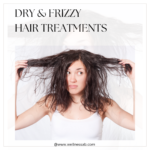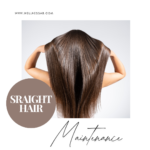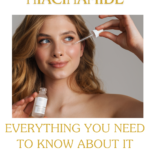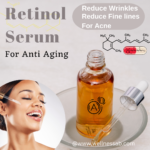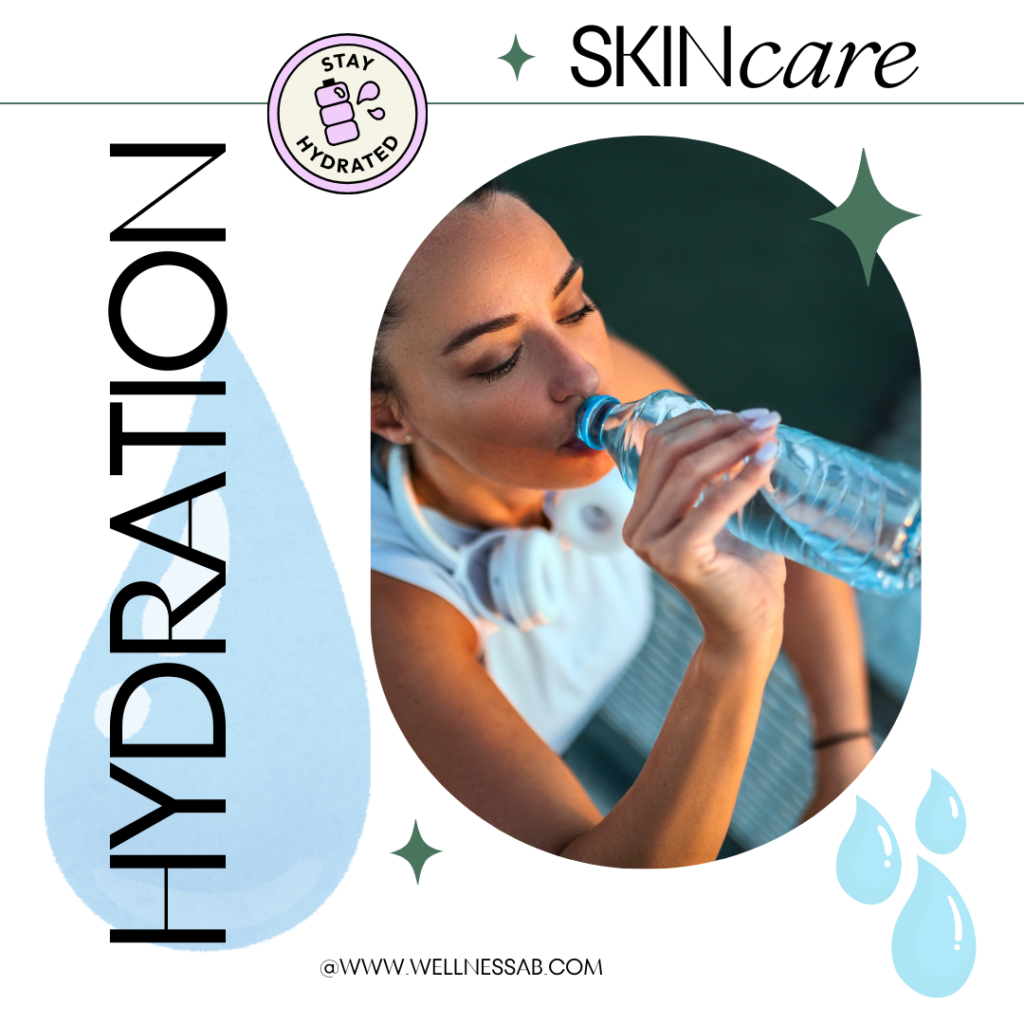
Table of Contents
Definition of Hydration in Skincare
Hydration in skincare refers to the process of increasing water content within the skin to maintain its softness, elasticity, and overall health. This is achieved through various skincare products and practices designed to keep the skin well-moisturized and functioning properly.
Importance of Hydration for Skin Health
Proper hydration is crucial for maintaining the skin’s barrier function, which protects against environmental stressors, pollutants, and pathogens. Well-hydrated skin appears plump, smooth, and radiant, reducing the appearance of fine lines and wrinkles. Additionally, hydration supports skin cell function and regeneration, promoting a healthy complexion.
The Science Behind Skin Hydration
Skin Structure and Function
The skin is composed of three main layers: the epidermis, dermis, and hypodermis. Each layer plays a vital role in maintaining skin health. The epidermis, the outermost layer, acts as a barrier to prevent water loss. The dermis provides structural support and houses sweat glands and hair follicles, while the hypodermis insulates and cushions the body.
Role of Water in Skin Health
Water is essential for various cellular functions within the skin. It helps maintain the skin’s elasticity, enhances nutrient absorption, and aids in the removal of toxins. Adequate hydration ensures that skin cells can function optimally, promoting a healthy and youthful appearance.
How Hydration Affects Skin Appearance
Hydrated skin appears more vibrant and resilient. When the skin lacks sufficient moisture, it becomes dry, flaky, and prone to irritation. Hydration helps smooth out fine lines, improves skin tone, and gives the skin a dewy, youthful glow.
Here you'll find the recommended K-Beauty products for every skincare concern
Types of Hydration
Humectants
Humectants are substances that attract water from the environment and deeper layers of the skin to the surface. Common humectants include glycerin, hyaluronic acid, and urea. These ingredients help keep the skin hydrated by drawing moisture into the outermost layer of the skin.
Emollients
Emollients are substances that soften and smooth the skin by filling in the gaps between skin cells. They help to create a protective barrier that locks in moisture. Examples of emollients include shea butter, jojoba oil, and lanolin.
Occlusives
Occlusives form a physical barrier on the skin’s surface, preventing water loss by trapping moisture. They are often used in conjunction with humectants and emollients to provide comprehensive hydration. Common occlusives include petrolatum, beeswax, and silicones.
Best Hydration Products for Radiant Skin
Hydration is key to maintaining healthy, glowing skin. Here are some of the best hydration products that can help you achieve and maintain a radiant complexion:
1. Hyaluronic Acid Serums
- The Ordinary Hyaluronic Acid 2% + B5: A budget-friendly option that provides deep hydration and plumps the skin.
- Neutrogena Hydro Boost Hydrating Serum: Lightweight and non-comedogenic, perfect for everyday use.
2. Moisturizers
- CeraVe Moisturizing Cream: Contains ceramides and hyaluronic acid to restore the skin’s barrier and retain moisture.
- Clinique Moisture Surge 72-Hour Auto-Replenishing Hydrator: Gel-cream formula that provides long-lasting hydration.
3. Hydration Masks
- Laneige Water Sleeping Mask: Overnight mask that deeply hydrates and soothes the skin.
- Fresh Rose Face Mask: Infused with real rose petals, this mask hydrates and tones the skin.
4. Facial Mists
- Evian Facial Spray: Pure, natural mineral water that refreshes and hydrates the skin instantly.
- Caudalie Grape Water: Soothing and moisturizing mist derived from organic grapes.
5. Essences
- SK-II Facial Treatment Essence: Rich in vitamins, amino acids, and minerals, this essence enhances skin hydration and radiance.
- Missha Time Revolution The First Treatment Essence: Infused with fermented yeast extract to boost hydration and skin texture.
6. Humectants
- Glycerin: A versatile ingredient found in many skincare products that attracts moisture to the skin.
- Hada Labo Gokujyun Hyaluronic Lotion: A Japanese favorite, this lotion is packed with hyaluronic acid for intense hydration.
7. Occlusives
- Vaseline Petroleum Jelly: A classic occlusive that locks in moisture and protects the skin barrier.
- Aquaphor Healing Ointment: Great for very dry or compromised skin, it seals in hydration and promotes healing.
These products cater to various skin types and needs, ensuring everyone can find something that works for them. Incorporate these into your skincare routine to keep your skin hydrated, healthy, and radiant.
Symptoms and Signs of Dehydrated Skin
Dryness and Flakiness
Dehydrated skin often appears dry and may exhibit flakiness, which can lead to a rough texture. This is due to the lack of sufficient moisture in the skin’s outer layer.
Tightness
A common symptom of dehydration is a feeling of tightness, especially after cleansing. This occurs when the skin’s moisture barrier is compromised, leading to discomfort.
Dullness
Dehydrated skin lacks the natural glow and radiance associated with healthy skin. The lack of moisture can cause the skin to appear dull and lifeless.
Fine Lines and Wrinkles
Without adequate hydration, the skin can develop fine lines and wrinkles more easily. Proper hydration helps plump the skin, reducing the appearance of these signs of aging.
Causes and Risk Factors
Environmental Factors
Environmental conditions such as low humidity, harsh weather, and excessive sun exposure can strip the skin of its natural moisture, leading to dehydration.
Lifestyle Choices
Lifestyle factors like inadequate water intake, poor diet, excessive caffeine or alcohol consumption, and smoking can negatively impact skin hydration levels.
Medical Conditions
Certain medical conditions, including eczema, psoriasis, and diabetes, can affect the skin’s ability to retain moisture. Additionally, some medications can lead to skin dryness and dehydration.
Diagnosis and Tests for Skin Hydration
Visual and Tactile Examination
A visual and tactile examination by a dermatologist can help diagnose skin dehydration. This involves assessing the skin’s appearance and texture.
Hydration Level Measurement Tools
Advanced tools like corneometers and skin hydration meters can measure the skin’s moisture levels, providing a quantitative assessment of hydration.
Hydration in Different Skin Types
Dry Skin
Dry skin lacks natural oils and often feels tight and rough. Hydrating products that include both humectants and emollients are essential for maintaining moisture.
Oily Skin
Contrary to popular belief, oily skin can also be dehydrated. Hydration is important to balance oil production and prevent the skin from overcompensating with excess oil.
Combination Skin
Combination skin requires targeted hydration, addressing both dry and oily areas. Lightweight, non-comedogenic hydrating products work well for this skin type.
Sensitive Skin
Sensitive skin is prone to irritation and requires gentle, hydrating products free from harsh chemicals and fragrances.
Treatment Options for Dehydrated Skin
Topical Treatments
Topical treatments like hydrating serums, moisturizers, and creams are formulated to replenish and retain moisture in the skin. These products often contain a combination of humectants, emollients, and occlusives.
Hydrating Serums
Hydrating serums are lightweight and penetrate deeply into the skin. Ingredients like hyaluronic acid and glycerin attract moisture and help plump the skin.
Moisturizers
Moisturizers provide a barrier to lock in hydration. They come in various formulations, from lotions to creams, catering to different skin types and hydration needs.
Hydration Masks
Hydration masks offer an intensive moisture boost. These masks are infused with hydrating ingredients and can be used weekly to supplement daily skincare routines.
Preventive Measures
Proper Skincare Routine
Establishing a proper skincare routine that includes cleansing, toning, and moisturizing is vital for maintaining skin hydration. Using products suited to your skin type ensures optimal results.
Hydration Boosters
Hydration boosters like facial mists and essences can be used throughout the day to refresh and hydrate the skin. These products are especially useful in dry environments.
Diet and Hydration
Drinking adequate water and consuming a balanced diet rich in fruits, vegetables, and healthy fats support skin hydration from within. Foods high in water content, such as cucumbers and watermelon, contribute to overall hydration.
Expert Insights
Dermatologist Opinions
Dermatologists emphasize the importance of hydration for maintaining skin health. They recommend using products with proven ingredients and avoiding excessive exfoliation.
Skincare Experts’ Advice
Skincare experts suggest incorporating multiple layers of hydration, such as using a hydrating serum followed by a moisturizer, to maximize moisture retention.
Conclusion
Summary of Key Points
Understanding hydration for skincare involves recognizing the importance of water for skin health, identifying symptoms of dehydration, and implementing effective treatment options. By using the right products and maintaining a healthy lifestyle, you can achieve and maintain hydrated, glowing skin.



